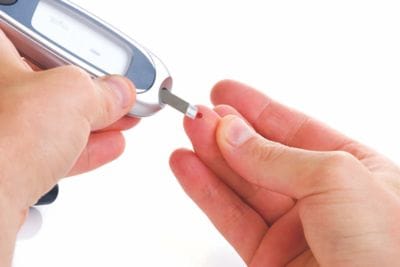Health check up for the diabetics: what to do?

Diabetes is a chronic disease that leads to many complications over time. In order to prevent complications, diabetes check ups are an extremely important part of diabetes care. There are some diabetes checks that you can carry out at home with others such as blood sugar monitor, foot care, weight, and keeping a diary. Some checks need laboratory assistance and physicians guideline. Proper checks for diabetes and its complication can really make a difference to the diabetes management.
If you have diabetes, you need check-ups at regular interval. There are some things you need to get a check-up for at least once in every 3 months, other things need a check-up at least once in every 6 months, and some check-ups must be done at least once every year.
Diabetes affects heart, eyes, kidneys, feet, blood vessel, nerve and disrupts some body functions. Here are some tests that should be done at regular interval of time.
Home glucose monitoring and record in the diary:
This is crucial to know whether diabetes is controlled or not and also signifies drug compliance. This should be done frequently as needed and be recorded with time and date for next doctor’s visit.
HbA1c:
This is the haemoglobin test in blood that tells what the average blood sugar has been in the last three months. Make sure that your HbA1c is in your target range (less than 7%) that will help you keep your risk for complications lower.
Cholesterol levels:
Blood cholesterol including HDL, LDL and Triglycerides should be measured at 6 months interval.
Creatinine and BUN levels:
Creatinine and Blood Urea Nitrogen (BUN) are waste substances that can build up in the blood if there is any damage to kidney.
Urine sample test for protein:
A urine sample collected over 8 or 24 hours to see level of protein called microalbumin should be done every year to make sure there is no damage to kidney.
Blood pressure:
People with diabetes tend to have trouble with high blood pressure, too. The target of blood pressure in a diabetic should be less than 130/80 mm of Hg. It should be checked frequently to prevent any damage in the body.
Feet and lower extremities check:
Decreased circulation and changes in the blood vessels of your feet and lower legs can cause serious problems. Wash feet and toes daily and always keep feet dry and especially between toes if they ever get wet. Inspect feet and between toes daily for blisters, cuts, scratches, possible infection. See a doctor for even minor foot infections.
Eyes:
Diabetes affects retina of eye called diabetic retinopathy. If retinopathy is not treated, it can lead to blindness. Check your eyes annually for this complication. However, anytime that you notice strange blotches, blurriness or dark spots in your vision, you should make an appointment with an eye doctor immediately.

 For all latest news, follow The Daily Star's Google News channel.
For all latest news, follow The Daily Star's Google News channel. 



Comments